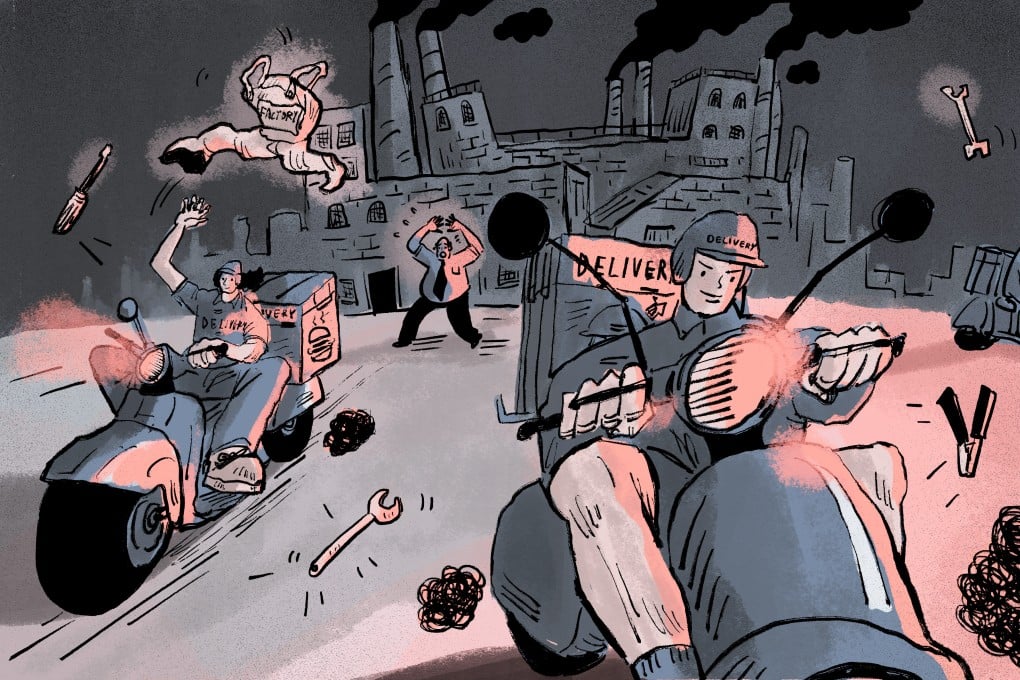China’s migrant workers are shunning factory jobs, and manufacturers are getting desperate
- Economists say China has reached a stage of economic development where young people are less inclined to take low-wage factory work, as better options are available
- Automation is helping manufacturers offset labour losses, but a lack of skilled engineers and other specialists is also slowing the development of advanced technologies

China’s young migrant workers are turning up their noses at humdrum factory jobs – a line of employment that previous generations were content with. Instead, many are opting to join the nation’s army of delivery workers, lured by better pay and more flexible hours.
“An internship at a factory can’t teach you anything,” said Liao Yong, a 19-year-old delivery driver in Beijing, where the job can easily bring in 15,000 yuan (US$2,350) a month – or about twice what some factory workers make on the low end.
“For seven or eight hours a day, you just keep repeating one job over and over again. There’s no room for me to improve my skills and advance. But delivery is more fun, and I get to see different things and meet different people.”
Young migrant workers nowadays want to have a life … working as a waiter at a restaurant is more appealing than a factory job
But for many of China’s young migrant workers, that’s a big ask. To them, the factory jobs their parents worked to pay for their rural homes are less appealing, even without considering new opportunities and the boom in urban delivery services.
